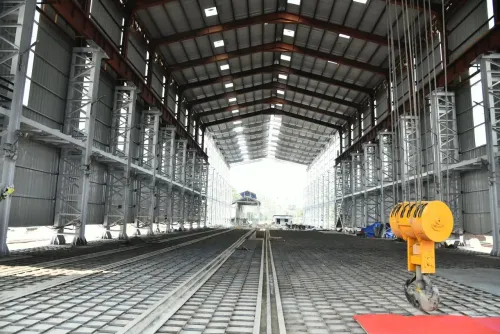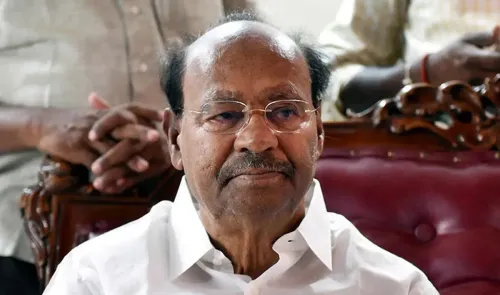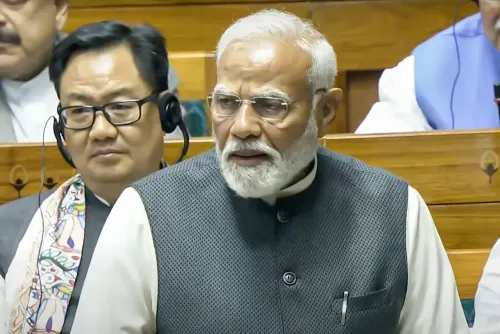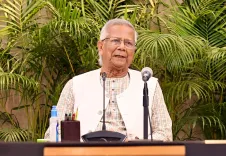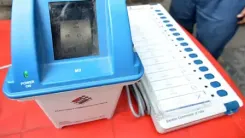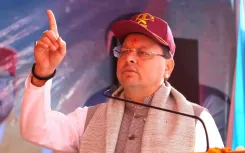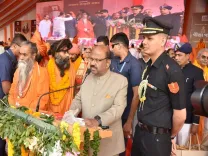Tribal Communities: Guardians of Indian Heritage, Says Durgadas Uikey
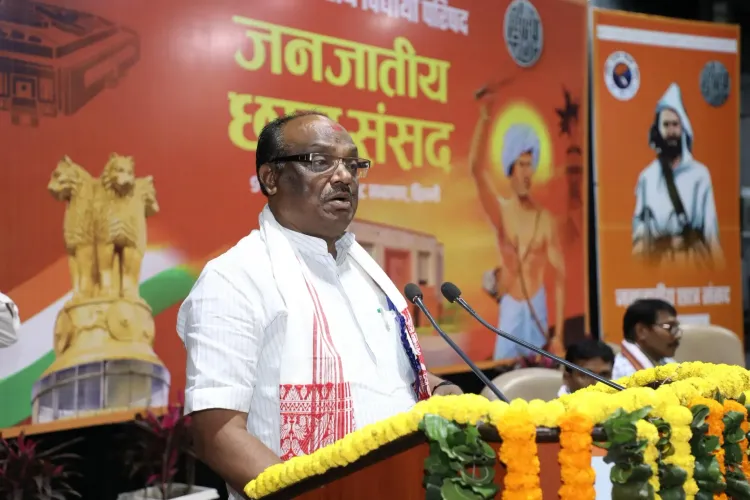
Synopsis
Key Takeaways
- Over 300 tribal students participated in the Parliament.
- Importance of cultural roots and traditions highlighted.
- Tribal communities are seen as guardians of Indian heritage.
- Discussions focused on education, health, and government schemes.
- Youth's active role in monitoring welfare initiatives was emphasized.
New Delhi, March 9 (NationPress) The three-day Parliament of Tribal Students held at the NDMC Convention Centre saw participation from over 300 tribal students nationwide.
The Minister of State for Tribal Affairs, Durgadas Uikey, who graced the occasion on Sunday, praised the initiative and emphasized the importance of reinforcing cultural roots to effectively tackle challenges through ideological discussions.
"The Akhil Bharatiya Vidyarthi Parishad plays a pivotal role in the advancement and awareness of tribal society. Tribal communities are not merely groups but the torchbearers of Bharatiya Culture and Traditions. Our ancient guru-shishya parampara exemplified social harmony, where knowledge transcended mere information, guiding individuals from the subtle to the expansive. We must take pride in our language, cuisine, customs, and traditions, which have always been centered around forests, and the tribal community continues to uphold these traditions," he stated.
He further noted, "In ancient times, Chanakya united the tribal society for national interests. Similarly, during the freedom struggle, Bhagwan Birsa Munda played a crucial role in uniting the tribal community. Even now, anti-national forces conspire to mislead our tribes."
Dr. Virendra Solanki, National Secretary of ABVP, remarked, "ABVP has always been dedicated to empowering all segments of society. Tribes are a vital part of Bharat's Cultural Heritage, and uplifting these communities is fundamental to national progress. Today's session illustrates that the youth of our nation think beyond their education, focusing on the broader interests of society."
The Tribal Students’ Parliament facilitated comprehensive discussions on education, health, employment, language, culture, preservation, and empowerment of tribal heritage.
This significant session included representatives from over 124 tribal communities across Bharat, such as Baiga, Sahariya, Maria, and Modiya. Students hailing from tribal regions like Rajouri (J&K), Chhotanagpur, Banswada, Bastar, Gadchiroli, and Nandurbar actively participated, expressing their concerns regarding education and the implementation of government schemes.
Various sessions centered on the education and employment of tribal students, their contributions to Bharat's development, and welfare initiatives. Participants reviewed the effectiveness of government programs like scholarships, residential initiatives, and skill development, proposing methods to reach grassroots.
A special session titled 'Youth's Role in Implementing Welfare Schemes' took place during the fourth session, featuring IAS Saroj Kumar, who shared insights on how young people can actively monitor and enhance the success of government programs. He stressed that informed and engaged youth can ensure the effective execution of welfare schemes.
On March 10, the Girl's Parliament will occur, followed by the Northeast Students & Youth Parliament on March 11, where students from across the country will engage in discussions on education, leadership, and nation-building.


